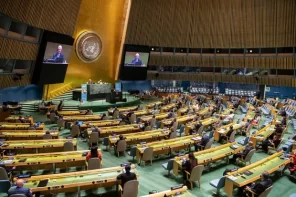Education is the cornerstone of a progressive society, shaping the minds of future leaders and innovators. In Lebanon, a country with a rich history of cultural diversity and a commitment to academic excellence, the International Baccalaureate (IB) curriculum stands out as a beacon of holistic education. Embraced by schools in Beirut and beyond, the IB program offers Lebanese students a unique approach that nurtures critical thinking, intercultural understanding, and a thirst for knowledge.

Lebanon’s strategic location, surrounded by the Mediterranean Sea and bordered by Syria and Israel, has historically resulted in a melting pot of civilisations, which is reflected in its educational landscape. So, let’s delve into this world of education and explore the essence of the curriculum of the international baccalaureate in Lebanon .
The Core Components
Central to the IB curriculum are its three core components: the Theory of Knowledge (TOK), the Extended Essay (EE), and Creativity, Activity, and Service (CAS). These elements are designed to provide students with a well-rounded educational experience that transcends traditional boundaries.
1. Theory of Knowledge (TOK)
TOK challenges students to question the nature of knowledge itself. It explores how humanity knows what it claims to know and encourages critical reflection on different ways of knowing, such as reason, perception, emotion, and language.
2. Extended Essay (EE)
The Extended Essay is a research project where students delve into a topic of personal interest, guided by a mentor. This in-depth study allows students to hone their research, writing, and analytical skills, preparing them for the demands of higher education. It encourages independent thinking and scholarly inquiry.
3. Creativity, Activity, Service (CAS)
CAS is the embodiment of experiential learning within the IB curriculum. It encourages students to engage in creative pursuits, physical activities, and community service. It fosters well-rounded individuals with a sense of social responsibility.
The Subject Groups
In addition to the core components, the IB curriculum comprises six subject groups, ensuring a comprehensive and balanced education for students:
1. Studies in Language and Literature
This group emphasises language study through a diverse range of literary works. From analysing classic literature to exploring contemporary texts, students develop critical reading and writing skills while gaining insights into different cultures and perspectives.
2. Language Acquisition
In a globalised world, proficiency in multiple languages is invaluable. The Language Acquisition group allows students to learn a new language or further develop their skills in a language they already know. Whether it’s French, Spanish, Mandarin, or any other language, students engage in linguistic and cultural exploration.
3. Individuals and Societies
This group encompasses subjects such as History, Geography, Economics, and Psychology. Students gain a deeper understanding of human behaviour, historical events, and social structures that shape our world by studying individuals, societies, and cultures.
4. Sciences
From Biology to Physics to Environmental Systems and Societies, the Sciences group nurtures scientific inquiry and critical thinking. It prepares them for careers in STEM fields or simply fosters a scientific mindset.
5. Mathematics
Mathematics is the language of logic and problem-solving. The Mathematics group offers courses tailored to different proficiency levels, from basic mathematical skills to higher-level calculus and statistics. Through mathematical exploration, students sharpen their analytical abilities and logical reasoning.
6. The Arts
Creativity knows no bounds in the Arts group. Whether it’s Visual Arts, Music, Theater, or Film, students unleash their artistic potential and develop a deep appreciation for various art forms. The Arts group fosters self-expression, creativity, and an understanding of the role of art in society.
Summing up, in a world where adaptability, critical thinking, and cultural competence are essential, the international baccalaureate in Lebanon stands as a beacon of progressive education. By embracing the IB curriculum, schools offer students a set of subjects and a transformative educational experience. As the world navigates the challenges of the 21st century, the IB curriculum remains a testament to the power of education to shape a brighter future for all.







